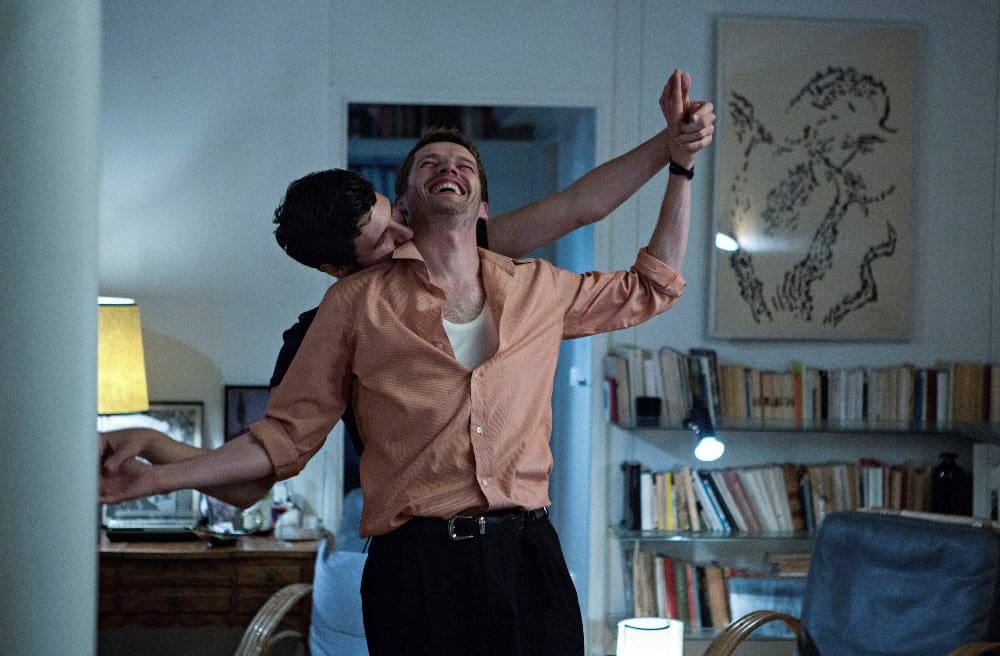
We’ve seen more LGBTQ+ representation in mainstream pop culture in the past two years than I’ve seen in my entire life. And that’s amazing. But one key bit of context frequently left out of this conversation is that we, as a community of queer viewers, don’t just want representation – we want good representation. There are certain tropes or storylines that we just don’t need to see anymore. Namely: tragic gay romances, specifically those involving AIDS.
Don’t get me wrong: AIDS narratives are very important—especially since so many people born in the ’90s or later don’t understand the impact of the AIDS epidemic, no matter their sexual orientation. And there are so many great tragic queer romances – Brokeback Mountain onscreen, Hanya Yanagihara’s A Little Life on the page, etc. But it becomes a problem when these narratives are our definitive narratives in pop culture—especially since it only encourages studios to invest in similarly depressing properties. Believe it or not, we have happy narratives we’d be happy to share, too!
Enter Sorry Angel, a film which, on paper, sounds like the exact sort of story we’re tired of seeing. It follows Jacques (Pierre Deladonchamps), a gay man dying of AIDS in the early 1990s. He’s a relatively successful writer in his mid-40s, and is trying to figure out how he wants to spend his remaining time on Earth. One day, he meets Arthur (Vincent Lacoste), a bisexual, recent college grad who is unsure of what he wants his next step to be. There is an instant attraction between the two, though the former is afraid to become close to yet another person that will inevitably mourn him.
We’ve seen this sort of narrative countless times before… but never quite like this. This is a fun, lively, and incredibly sexy romance that finds both its main actors playing off each other with aplomb. From their charming meet-cute to their last scene, with dozens of charming conversations in between, Arthur and Jacques just work together as a couple. The film clearly understands how much fun it is to watch the two of them together, and director Christophe Honoré injects the energy of a pop video into every frame. For a film about death, it has an incredible amount of life, and it’s so hard to not be swept away in the magic of it all. We need more queer romances like this.
Its lead stars play a big part in the film’s success, too. Vincent Lacoste is, frankly, a movie star. The camera loves him, whether he’s being charming, flirty, or heart-achingly sincere. At his side, Deladonchamps brings years worth of internalized character development to his role, making Jacques feel like a fully-realized person even when the script falls short. When the film begins, Jacques has long histories with many different people in his lives: past lovers, co-workers, and good friends from all different walks of life. While the script provides very little context for his relationships with these people, Deladonchamps does the heavy-lifting and subtly clues viewers in to his past lives.
And while Sorry Angel may rely on a main plot we’ve seen before, it at least tells its story in a way that feels somewhat fresh and stands out from other queer movies. For one thing, the film is incredibly explicit, holding very little back during its many sex scenes. That’s a good thing: queer films have a long history of feeling frustratingly chaste, or approach gay sex in a way that is clearly directed by a straight man with no knowledge on the subject (see: the otherwise lovely Brokeback Mountain). This film has fun with its graphic sex scenes and nudity, a luxury not afford to queer storylines by most mainstream directors, but taken for granted in straight sex scenes.
The film also explores the subject of “chosen” queer families, something name-checked in RuPaul’s Drag Race and more thoroughly examined in the legendary musical Falsettos. Jacques may not have a steady romantic partner at the start of the film, but he has a best friend (also gay) who cares for him, a casual lover who he shares a strong bond with, and a son he co-parents with his closest female friend. Together, they form a unique family of their own: one built on pride and genuine, unconditional love. This is the sort of community that many queer people forge for themselves, yet it is rarely ever depicted onscreen. Seeing these different people care for Jacques is genuinely touching, just as it is sweet to see Arthur try to find his place in this family.
On one level, yes, Sorry Angel is yet another LGBTQ+ film about two lovers who will, inevitably, be torn apart by the AIDS crisis. We’ve seen this narrative before. But we’ve never seen it quite like this, and that’s what really matters. This is a joyful romance filled with life, one totally unashamed of its queerness, and one that is genuinely well made and wonderfully acted. Maybe we don’t need to retire tired tropes – we just need to find a way to re-energize them.
Rating: 9/10

